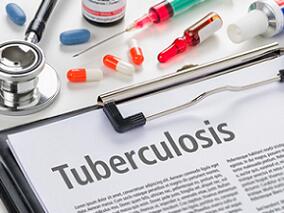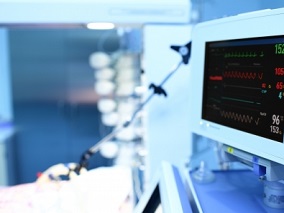FDA专家小组建议批准HIV复方药Truvada
5月11日消息 - 环球医学据悉,本周四,FDA咨询委员会以压倒性结果达成一致,建议应当批准一种抗-HIV复方药片用于健康人群预防HIV感染。
这种复方药(Truvada,特鲁瓦达)由恩曲他滨和替诺福韦组成,该委员会认为其安全性与耐受性良好,每日使用有助于高风险人群预防HIV感染。
专家小组以19-3的表决结果认为,风险-获益分析支持批准该药用于发生同性性行为的男性;以19-2、一票弃权的表决结果支持批准该药用于异性恋双方中一方感染了HIV,而另一方未感染的人群。
该小组还要求,对于其他具有性行为感染HIV风险的人群,也要考虑其风险-获益特性;表决结果为12-8,两票弃权,支持批准该药。
这一表决结果标志着控制HIV/AIDS流行的开始——迄今为止,HIV药物一直被批准用于治疗,而并未被批准用于所谓的暴露前预防(PrEP)。FDA并不必须遵照咨询小组的建议,但FDA通常会这样做。
该委员会获悉,两项主要试验发现,对于具有高HIV感染风险的健康人群,每天服用Truvada可带来显著的保护作用。需要说明的是,一贯坚持服药者所获得的保护作用最大。
在iPrEx和Partners PrEP研究之后,该药的制造商,加利福尼亚州福斯特市的吉利德科学公司要求批准新的适应症。
尽管投票结果肯定了该药,但人们仍在详细地讨论方法,以防止该药伤害到并不需要此药治疗的人群。
一项提议的风险评估和减灾策略(REMS)可向患者提供用药指南并向医生和患者调查其用药情况,但该REMS被定性为过于被动。
对该药产生耐药性是一个关键的风险,如果已经感染了HIV的人使用了该药,就可能产生耐药性。专家小组成员担心,提出的REMS中并无一种机制能够确保Truvada只给予HIV阴性者。
委员会获悉,并无信号表明对恩曲他滨或替诺福韦耐药是新出现的风险。FDA的审评人员指出,两项试验在接受治疗时感染了HIV的患者中,并未发现耐药性变异病例。
另一方面,在试验开始时未能检出的急性HIV感染者中,发现了几例耐药性变异。
在专家小组之前就进行了验证的几个人——其中很多人与总部位于洛杉矶的艾滋病保健基金会(AHF)有关——表示反对批准该药,理由是:健康人不太可能服用该药,然后相信自己受到保护,并暴露自己而增加感染HIV的风险。
“人们不会每天服用Truvada,”注册护士Karen Haughey认为。“在没有生病时吃药不是我们的天性。”
事实上,AHF的医学博士Catherine Chien说,“我很难有足够的时间来说服HIV感染者坚持服药。”她指出,研究中仅有少数受试者的用药依从性较高。
该基金会的总顾问Tom Myers指出,该药带来的获益是在进行安全性与用药依从性强化定期辅导的背景下观察到的。
但这样的辅导在美国是罕见的,他补充说,“在缺少的这些干预措施的情况下,尚不能证明(用Truvada 进行PrEP)是安全和有效的。”
然而,其他受试者认为,批准该复方药用于PrEP将会增加现有的预防措施——即使这需要一些努力来确保该药得到安全正确的使用。
“如果和怎样做是巨大且复杂的,但这并不能成为不批准这种药物的补充新指征的理由,” 总部位于纽约的宣传组织AVAC的执行董事Mitchell Warren说。“批准该药是管理由此产生的许多问题的最佳方式。”
几十年来抗逆转录病毒药物一直仅用于治疗;确实上,恩曲他滨/替诺福韦是HIV感染者现代三联药物治疗中的重要支柱。
PrEP与目前多数干预措施不同的优势是,保护控制掌握在未感染HIV者手中。但这个问题一直存在争议——即使仅仅是因为抗逆转录病毒药物价格昂贵,且在许多地方很难得到。
最近的一项试验表明,在异性恋双方只有一方感染了HIV的人群中,使用全量三联疗法进行治疗可将HIV的传播风险降低超过90%。
包括温哥华不列颠哥伦比亚大学的医学博士、前国际艾滋病协会主席Julio Montaner在内的许多专家都认为,鉴于此证据,稀缺药物的最佳应用就是让感染者接受治疗。
这种方法可能会引发责任推卸大爆炸,Montaner在国际艾滋病协会2011罗马会议上对《MedPage Today》表示。
Montaner说:“现在,对于阻止HIV流行而言,最好最实惠的投资就是投资于治疗,大量地、尽可能地投资于治疗。”而他认为,PrEP这种方法将仅仅具有“非常有针对性”的作用,定位于因为这样或那样原因具有高HIV感染风险却并不能控制HIV暴露的人群。(环球医学)
原文:
FDA Panel Gives Nod to HIV Prophylaxis Pill
An anti-HIV combination pill should be approved to prevent HIV infection in healthy people, an FDA advisory committee agreed overwhelmingly Thursday.
The combination of emtricitabine and tenofovir (Truvada) is safe and well tolerated, the committee decided, and helps prevent HIV infection when used daily by people at high risk.
The panel voted 19 to 3 that a risk-benefit analysis favored approval of the drug for men who have sex with men, and 19 to 2, with one abstention, for heterosexuals in couples in which one partner has HIV and the other does not.
The panel was also asked to consider the risk-benefit profile for other people at risk of acquiring HIV through sexual activity; the vote was 12-8 favoring approval, with two abstentions.
The vote marks a departure in the battle to control the HIV/AIDS pandemic – HIV drugs until now have always been approved for therapy, rather than for so-called pre-exposure prophylaxis (PrEP). The FDA is not required to follow the advice of its advisory panels, but it usually does.
The committee was told that two major trials found that -- for healthy people at high risk for infection – taking Truvada daily yields significant protection. The caveat is that the protection was greatest among those who were most consistent about taking the medication.
The drug's maker, Gilead Sciences of Forest City, Calif., asked for the new indication in the wake of the iPrEx and Partners PrEP studies.
Despite the positive votes, there was detailed discussion about ways to prevent potential harms involved in prescribing drugs to people who do not need them for treatment.
A proposed Risk Evaluation and Mitigation Strategy (REMS), which would offer medication guides to patients and would survey physicians and patients about their use of the drug, was characterized as too passive.
A key risk is resistance to the drugs, which can arise if it is used by a person who is actually infected. Panel members worried that the proposed REMS does not include a mechanism to ensure that Truvada would only be given to a person who is HIV-negative.
There was no signal that resistance to either drug was an emerging danger, the committee was told. FDA reviewers noted that there were no cases of resistance mutations found among those who became infected while on treatment in the two trials.
On the other hand, there were several cases of resistance mutations found in participants had an undetected acute HIV infection when they started the trials.
Several people who testified before the panel – many of them associated with the Los Angeles-based AIDS Healthcare Foundation (AHF) -- opposed approval on the grounds that it is unlikely that healthy people will take the medication properly, exposing them to increased risk since they will believe they are protected.
"People aren't going to take Truvada daily," argued Karen Haughey, RN. "It's not in our nature to take pills when we're not sick."
Indeed, said Catherine Chien, MD, of the AHF, "I have a hard enough time convincing patients with HIV to be adherent to their medication." In the studies, she noted, only a minority of participants were highly adherent to the medication.
Tom Myers, the foundation's general counsel, noted that the benefits seen in the trials were in the context of intensive regular counseling about safe sex and adherence to medication.
But such counseling is rare in the U.S., he said, adding that "absent these interventions (PrEP with Truvada) has not been shown to be safe and effective."
Other participants, however, argued that approving the drug combination for PrEP would add to the available prevention measures, even if it will take some effort to make sure it is used correctly and safely.
"The ifs and the hows are huge and complex, but they are not reasons not to approve this supplemental new drug indication," said Mitchell Warren, executive director of the New York-based advocacy group AVAC. "Approval is the best way to manage the many issues raised here."
Anti-retroviral drugs have for decades been used only for treatment; indeed, emtricitabine/tenofovir is one of the mainstays of modern triple-drug therapy for people already infected with HIV.
One advantage of PrEP would be that control of protection would lie in the hands of the uninfected partner, unlike most current interventions. But the issue has been controversial, if only because anti-retroviral medications are expensive and – in many places – hard to come by.
And a recent trial showed that, in heterosexual couples where only one partner is infected, treating the infection with full-scale triple-drug therapy reduced the risk of transmission by more than 90%.
Many experts, including former International AIDS Society president Julio Montaner, MD, of the University of British Columbia in Vancouver, have argued that, in the light of the evidence, the best use of scarce medications is to get infected people on treatment.
Such an approach is likely to provide a bigger bang for the buck, Montaner told MedPage Today at the Rome meeting of the International AIDS Society in 2011.
"The best, most solid investment in stopping the epidemic is to invest in treatment now, massively, as much as we can," Montaner argued, while PrEP will only have a role as a "very targeted" approach, aimed at people who for one reason or another are at high risk and can't control their exposure to the virus.
相关链接:http://www.medpagetoday.com/HIVAIDS/HIVAIDS/32625
- 评价此内容
- 我要打分
近期推荐
热门关键词
合作伙伴
Copyright g-medon.com All Rights Reserved 环球医学资讯 未经授权请勿转载!
网络实名:环球医学:京ICP备08004413号-2
关于我们|
我们的服务|版权及责任声明|联系我们
互联网药品信息服务资格证书(京)-经营性-2017-0027
互联网医疗保健信息服务复核同意书 京卫计网审[2015]第0344号




 会员登录
会员登录

